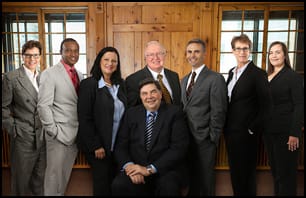DOL Releases New Model FMLA Forms
DOL Releases New Model FMLA Forms
The U.S. Department of Labor (DOL) recently published “updated” Family and Medical Leave Act (FMLA) notification and certification forms effective through February, 2015. These forms replace the FMLA forms that had expired as of December 31, 2011. Employers may use either the forms prepared by the DOL or their own forms, as long as the forms used contain all information required by the FMLA. The DOL’s new FMLA forms may be accessed as follows:
- Certification of Health Care Provider for Employee’s Serious Health Condition (WH-380-E);
- Certification of Health Care Provider for Family Member’s Serious Health Condition (WH-380-F);
- Notice of Eligibility and Rights & Responsibilities (WH-381);
- Designation Notice (WH-382);
- Certification of Qualifying Exigency For Military Family Leave (WH-384);
- Certification for Serious Injury or Illness of Covered Service member – for Military Family Leave (WH-385).
No substantive changes have been made to these forms except the effective date. To the dismay of many employers, who expected the forms to address the 2010 amendments regarding military family leave (e.g., changes in exigent leave and the inquiry of a service member’s past military service) and the Genetic Information Nondiscrimination Act (GINA) safe-harbor language, no reference to either is made. It is up to employers to properly amend the forms in order to remain in compliance with current law. GINA prohibits employers with 15 or more employees from requesting or requiring “genetic information” from any applicant or employee, but it provides a “safe harbor” for employers who lawfully request medical information (such as for FMLA purposes) if the employer informs the employee at the time the information is sought that it is not seeking genetic information about the employee or his or her family member.
Should employers wish to ensure compliance with GINA, they are encouraged to contact an Engelmeier & Umanah attorney to seek advice as to how their FMLA model forms can be modified to include appropriate GINA language to take advantage of that law’s safe harbor provisions.

